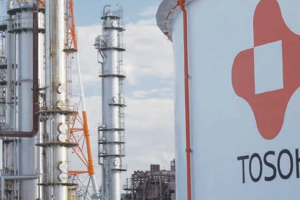March 5, 2025 – Honeywell China President Unveils Strategic Focus on Aviation, Energy Transition, and Automation
In a recent interview with multiple media outlets, including The Paper, Yu Feng, President of Honeywell China, outlined the company’s strategic focus for the year ahead. Honeywell will concentrate on three key areas: future aviation, energy transition, and automation, aiming to drive sustained growth in its China business through an aggressive talent strategy and the establishment of an elite innovation team tailored to local needs.

Yu highlighted Honeywell’s industry-leading position in various technological domains, including energy management, carbon capture and storage, sustainable aviation fuels (SAF), and plastic recycling. The company is accelerating the commercialization of these technologies in the Chinese market, with SAF being a particularly noteworthy project.
According to AsiaMB’s understanding, Yu noted that although aviation currently accounts for a relatively small share of global carbon emissions, this proportion could surge by 2050 without innovation. Honeywell possesses the technology to convert waste oils, straw, and other discards into SAF, but raw material supply is limited. To address this, the company is exploring a new pathway: utilizing industrial carbon dioxide emissions combined with green electricity to produce green methanol, which can then be further converted into SAF. This is seen as a significant market opportunity.
Last year, the SAF industry received policy support as the Ministry of Finance and the State Administration of Taxation eliminated export tax rebates for waste oils. Yu believes this policy adjustment is crucial for promoting the development of the domestic SAF industry. He lamented that a substantial amount of waste oil is still being exported when it should be utilized domestically to produce green energy.
Honeywell is engaging with relevant government agencies to establish scientific testing methods for SAF, distinguishing it from conventional aviation kerosene, thereby ensuring more enterprises can benefit from green policies. Honeywell’s technology is already being applied in SAF production bases across multiple regions in China.
Regarding technological pathways, Honeywell anticipates a diversified trend in China’s SAF production to address issues such as raw material supply, production costs, and environmental impact. Data shows that SAF produced using Honeywell’s technology significantly reduces greenhouse gas emissions over its lifecycle.
Furthermore, Honeywell boasts the UpCycle process technology, which transforms discarded plastics into raw materials for manufacturing new plastics. Yu expressed his hope for this technology to take root in China, not only addressing the country’s plastic pollution problem but also contributing to the global plastic recycling industry.
Notably, Honeywell’s China R&D team plays a vital role in the company’s global innovation network. Yu emphasized that China is not just a vast market but also a significant force in global technological innovation. To meet the innovation demands of the Chinese market, Honeywell’s China-based researchers not only support global projects but also conduct R&D tailored to local market and customer needs, driving revenue growth from locally developed new products.














